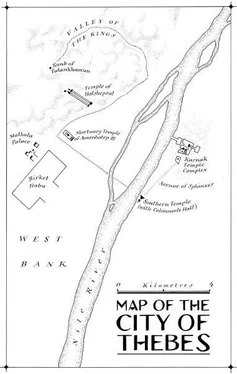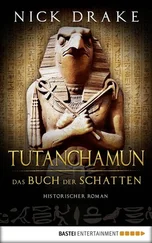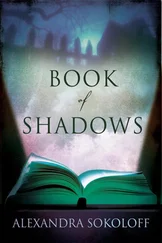Nick Drake - Tutankhamun - The Book of Shadows
Здесь есть возможность читать онлайн «Nick Drake - Tutankhamun - The Book of Shadows» весь текст электронной книги совершенно бесплатно (целиком полную версию без сокращений). В некоторых случаях можно слушать аудио, скачать через торрент в формате fb2 и присутствует краткое содержание. Жанр: Исторический детектив, на английском языке. Описание произведения, (предисловие) а так же отзывы посетителей доступны на портале библиотеки ЛибКат.
- Название:Tutankhamun: The Book of Shadows
- Автор:
- Жанр:
- Год:неизвестен
- ISBN:нет данных
- Рейтинг книги:4 / 5. Голосов: 1
-
Избранное:Добавить в избранное
- Отзывы:
-
Ваша оценка:
- 80
- 1
- 2
- 3
- 4
- 5
Tutankhamun: The Book of Shadows: краткое содержание, описание и аннотация
Предлагаем к чтению аннотацию, описание, краткое содержание или предисловие (зависит от того, что написал сам автор книги «Tutankhamun: The Book of Shadows»). Если вы не нашли необходимую информацию о книге — напишите в комментариях, мы постараемся отыскать её.
Tutankhamun: The Book of Shadows — читать онлайн бесплатно полную книгу (весь текст) целиком
Ниже представлен текст книги, разбитый по страницам. Система сохранения места последней прочитанной страницы, позволяет с удобством читать онлайн бесплатно книгу «Tutankhamun: The Book of Shadows», без необходимости каждый раз заново искать на чём Вы остановились. Поставьте закладку, и сможете в любой момент перейти на страницу, на которой закончили чтение.
Интервал:
Закладка:
‘I’ll leave Thoth on guard.’
She kissed me carefully, and retired to our chamber.
We arrived at the docks, at the place where the ferries cross. By day it is crowded with boats and ships of all sizes, from little reed boats and passenger ferries through to the large commercial ships of the kingdom, and the transporters of stone. The economy that keeps the city thriving and affluent, and supplied with luxuries, construction materials and food, is based here; deals are sealed or betrayed, and goods imported or smuggled. But by night it is quiet. No trade happens in the night hours because it is so dangerous to sail the Great River after dark; crocodiles cruise invisibly, disguising their predatory manoeuvres in the currents and swirls of the black water.
But the sophisticated and beautiful vessel we boarded would need a herd of crocodiles to capsize it; we settled ourselves within the curtained privacy of the cabin and passed the brief crossing in silence. Khay offered me more wine, which I refused. He shrugged and poured some for himself and sat down to drink. I played with the toy, turning the wheel so that the dog, with its crudely sawn ridge of raised wooden hackles and its red fangs, rose repeatedly up to the man. And I thought about the child who had said to me many years ago: Look! It’s you…! But I was not going to open the sealed box of those memories. Not yet. I gazed at the low rooftops and white walls of Thebes lit by the moon as we sailed towards the west bank. Most of the city’s multitudes would be asleep now, to prepare for tomorrow’s return to their perpetual labours; only those with wealth and liberty would still be up, at their private festivals of wine and pleasure, gossiping about the events of the day, and the politics, and the consequences.
We did not dock directly on the western bank, but instead sailed past the guard stations, then up a long, dark channel between the trees and fields, now stirring with nightlife. The channel, built in the straight lines beloved of engineers, opened suddenly into the great T-shaped basin of the Birket Habu lake. Flocks of night birds squabbled on its flat, still surface. Ramps of hewn rock, which protected the surrounding complex of buildings from the inundation, hid the landscape from view. But I knew what lay beyond those ramparts: the Malkata Palace, a vast assemblage of buildings, where the royal family maintained their closely guarded royal quarters and those of the thousands of officials, officers and servants who work to make their strange life possible. It was known as the ‘Palace of Rejoicing,’ but there seemed little about the dark construction that now began to come into view to earn it such an optimistic title. It was famous for the elaboration and expense of its construction under Tutankhamun’s grandfather, and for its remarkable water system that, it was rumoured, supplied bathrooms, pools and gardens even in the heart of the palace. It was said the beds were inlaid with ebony, gold and silver. It was said the doorframes were solid gold. Such are the things people say about the dream palaces they will never visit.
We docked at the vast palace jetty that spread all along the lake’s frontage. Copper bowls of oil on wrought stands burned, giving off a thick, sinister yellow and orange light. The palace guards bowed low as Khay and I stepped off the boat. The depth of their obeisance gave a clear indication of this man’s status here. In any case, he utterly ignored their existence, as these high-ranking men always do.
We set off down a long processional way, lit by lamps, and the welcome, familiar moon, towards the long, low silhouette of the palace complex, and then-my heart compelled by the mystery ahead, and my feet by necessity-we entered a great gloom.
6
The Keeper of the Royal Household took a lit oil lamp from a niche. Everything seemed hushed, lavishly decorated and sealed from the outside world. All along the corridor, down which we marched at speed, were beautiful statues and carvings set upon plinths. I wondered what went on in these side chambers; what meetings, what discussions, what resolutions with what great consequences reaching down through the hierarchies, and out into the unsuspecting and powerless world? We moved on, taking turns to the right or to the left, passing through high, echoing halls where occasional groups of officials conferred and guards were stationed, making our way deeper and deeper into the complex. It was a labyrinth of shadows. Sometimes a servant or a guard passed, their heads bowed low, pretending not to exist as they tended the lights of the oil lamps.
Chamber after chamber of walls painted with glorious scenes of elite pleasure and leisure-birds in the reed marshes, fish in the clear waters-appeared and disappeared in the light of the lamp. It would be difficult to find my way back. My footsteps sounded all wrong-a disturbance in the vast hush. Khay moved ahead on his costly, quiet sandals. I decided to make more noise, just to annoy him. He refused to dignify my behaviour with even a backwards glance. But it is strange and true that we can read a man’s face by the back of his head.
We passed swiftly through a checkpoint, as Khay waved away the elite guards of the royal quarters, and then he led me into the inner sanctum, along another high passageway, until finally we paused before great double doors of dark wood inlaid with silver and gold, beneath a carved, winged scarab. He knocked precisely, and after a pause the doors opened, and we were admitted into a large chamber.
Opulent surfaces and furniture were illuminated by large hammered bowls, set all around the walls, whose flames burned very still and clear. The furnishings and decor were immaculately restrained. Here, the room seemed to say, life could be lived calmly, with elevated feelings. But it also had the air of a stage spectacle: as if behind these glamorous facades one might discover masons’ rubble, painters’ brushes, and unfinished business.
A young woman entered quietly from the courtyard beyond the open doors, and paused at the threshold, between the firelight from the great bowls and the dark shadows that surrounded everything. She seemed to carry something of both with her. Then Ankhesenamun stepped into the light, closer now. Her face, for all its youthful beauty, was engagingly confident. She wore a fashionable, braided, lustrous wig that framed her features, a pleated linen gown tied beneath her right breast, whose flowing cut seemed to sculpt her elegant, neat form, and a broad gold collar, fashioned from row upon row of amulets and beads. Bangles and bracelets shifted and tinkled elegantly around her wrists and ankles as she moved. Rings of gold and electrum flashed on her delicate fingers. Gold disc earrings glittered in the lamplight. She had carefully painted around her eyes with kohl, and drawn out the black lines in a style that was slightly old-fashioned-I realized, as she gazed at me, the ghost of a smile on her lips, that she had deliberately made herself look very much like her mother.
Khay quickly bowed his head, and I copied him, and waited, as protocol demanded, for her to begin the conversation.
‘I am not sure if I remember you, or if what I remember is from stories I have been told.’
Her voice was full of self-possession, and curiosity.
‘Life, prosperity and health. You were very young, majesty.’
‘In another life. Another world, perhaps.’
‘Things have changed,’ I said.
‘Look up,’ she said, quietly; and with an enigmatic flash of her dark eyes, she turned away, expecting me to follow her.
We moved into the courtyard. Khay did not withdraw but followed discreetly, at a distance where he could still hear us, but pretend not to. A fountain trickled somewhere in the shadows. The dark air was cool and scented. She moved along an ornamental pathway, lit by more flickering lamps, further into the moony dark.
Читать дальшеИнтервал:
Закладка:
Похожие книги на «Tutankhamun: The Book of Shadows»
Представляем Вашему вниманию похожие книги на «Tutankhamun: The Book of Shadows» списком для выбора. Мы отобрали схожую по названию и смыслу литературу в надежде предоставить читателям больше вариантов отыскать новые, интересные, ещё непрочитанные произведения.
Обсуждение, отзывы о книге «Tutankhamun: The Book of Shadows» и просто собственные мнения читателей. Оставьте ваши комментарии, напишите, что Вы думаете о произведении, его смысле или главных героях. Укажите что конкретно понравилось, а что нет, и почему Вы так считаете.











